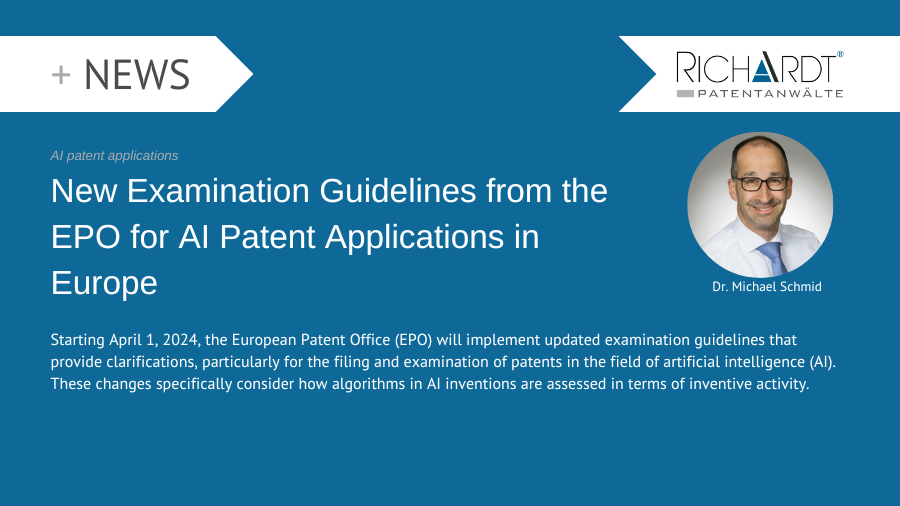Starting April 1, 2024, the European Patent Office (EPO) will implement updated examination guidelines that provide clarifications, particularly for the filing and examination of patents in the field of artificial intelligence (AI). These changes specifically consider how algorithms in AI inventions are assessed in terms of inventive activity.
Key Updates in the Examination Guidelines
The revised guidelines clarify the treatment of algorithms in AI inventions, especially in section G-II-3.3.1. A fundamental principle is that algorithms are considered to contribute to inventive activity only if they have a technical character. A crucial clarification in the examination guidelines is that not every claimed technical effect automatically contributes to the assessment. Instead, the technical effect of a machine learning algorithm must be clearly discernible or demonstrable through explanations, mathematical proofs, experimental data, or similar evidence. Superficial claims are insufficient.

Requirements for the Disclosure of Training Data
Another important aspect concerns the disclosure of training data. The guidelines specify that features of the training data set necessary for reproducing the technical effect must be disclosed. However, this is only required if these features cannot be derived from general expert knowledge without undue effort. The guidelines do not demand the disclosure of the specific training data set itself.
Practical Impact of the New EPO Examination Guidelines for AI Inventions
In practice, this means that technical effects of machine learning algorithms must still be mentioned in patent applications. However, it must be ensured that this is a) plausible and b) the technical effects are applicable across the entire scope of the patent claims. If a technical effect is plausible only with respect to specific training data, features of the training data must be included in the patent application. This is particularly in line with decision T0161/18, which emphasized that a lack of information on details of AI training data could lead to the invention being considered insufficiently disclosed (Art. 83 EPC).
Conclusion
The new examination guidelines from the EPO set clear standards for the patent application of AI-based inventions and emphasize the need for a precise presentation of technical effects and the associated training data. Patent attorneys and inventors in the field of artificial intelligence should closely study these changes and adjust their application strategies accordingly.
Talk to us and contact us for further information at:
Phone: +49 (0)611 / 341568-0
Fax: +49 (0)611 / 341568-11
E-mail: Send email to us
PGP-Key
Author: Dr. Michael Schmid
